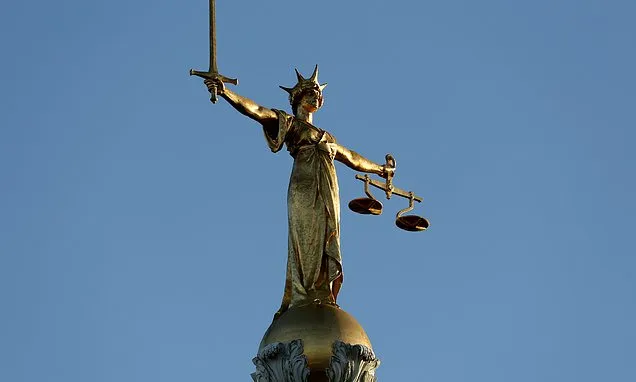Reducing the number of jury trials and resolving more cases outside of court are among "fundamental" reforms to the court system proposed to "reduce the risk of total system collapse".
Sir Brian Leveson has unveiled plans to shake up the structure of courts and reclassify offences on Wednesday in a bid to cut the record-high backlog where some cases are listed for 2029.
It comes as the crown court backlog in England and Wales has passed 75,000 cases for the first time, rising to 76,957 at the end of March.
Sir Brian's recommendations have been modelled to save approximately 9,000 sitting days in the crown court each year from some of the main changes, such as by diverting cases to magistrates' courts or to the proposed Crown Court Bench Division for trials to be heard by judges.
Juries would be reserved to hear the most serious cases, and defendants would receive a 40% discount on their sentence if they plead guilty at the earliest opportunity.
Sir Brian also called for a greater use of cautions or unpaid work to divert more cases away from court.
The former senior judge told reporters he does not "rejoice" in the recommendations, but added: "I do believe that they are absolutely essential if we are to prevent our system from collapse."
Sir Brian, chairman of the independent review of the criminal courts, said: "It is well recognised that justice delayed is justice denied, but the record and rising court backlog means victims, witnesses and defendants are waiting months, sometimes years, for cases to come to trial - unable to move on with their lives.
"This situation is simply unacceptable."
Reacting to the proposed changes, the Victims' Commissioner Baroness Newlove said for victims, proposals such as sentence discounts will "feel like justice diluted once again", but added the reforms were "necessary".
"There is no credible alternative, but even this may fall short of what's truly needed," she said.
In the report Sir Brian warned that "the reality of criminal courts which are no longer effective is already beginning to materialise".
He said the proposed reforms take a "proportionate approach to trial processes while maintaining a right to a fair trial".
He added: "These are not small tweaks but fundamental changes that will seek to make the system fit for the 21st century."
Either way, offences with a maximum custodial sentence of two years or less, such as possession of drugs, bike theft and voyeurism, could face lower penalties of 12 months imprisonment or less.
Defendants in cases for offences including assault of an emergency worker, stalking and possessing an indecent photograph of a child would also no longer have the right to choose a jury trial.
A new Crown Court Bench Division, made up of two magistrates and a judge, would have powers to deal with all either way offences such as fraud, child abduction, sexual assault and violent disorder.
A judge would decide whether a defendant's case would be sent to the new court, or to the crown court with a jury.
The review report published on Wednesday made up the first part of Sir Brian's recommendations, with a second report focusing on court efficiency expected to be published later this year.
Justice Secretary Shabana Mahmood said ministers will now consider the recommendations and will respond ahead of legislating changes in the autumn.
The Lord Chancellor said: "I have already lifted courts funding to record levels, funding 4,000 more court sitting days than under my predecessors.
"But swifter justice requires bold reform, and that is what I asked Sir Brian Leveson to propose.
"As part of our Plan for Change, I will do whatever it takes to bring down the backlog and deliver swifter justice for victims."
The review comes as ministers accepted the majority of recommendations from the independent sentencing review to curb overcrowding in jails in the long-term.
Responding to the report, Law Society for England and Wales president, Richard Atkinson, said the creation of the new division in the crown court on its own will not solve the backlog, and warned the Government should not cherry-pick the recommendations.
"Without sustained long-term investment in the system dealing with both demand on the courts and the capacity of the courts, the Government will simply be shifting the Crown Court backlog to the Magistrates' Court backlog and creating another backlog in the new division."
National chair of the Magistrates' Association, Mark Beattie, said magistrates were "ready and willing" to support the changes to reduce pressure off crown courts.
"Magistrates are critical for our justice system. They handle over 90% of criminal cases and without them, the system would quickly grind to a halt.
"But their capacity is not unlimited and, if the proposed Criminal Court Bench Division is implemented, there will need to be more magistrates."
He added the reforms would expect to need more than 20,000 magistrates, rising from the current 14,600.
Meanwhile, chairwoman of the Bar Council, Barbara Mills KC, rejected the need to curtail the right to a trial by jury, arguing that juries represent society and a fundamental part of the system.
The representative body for barristers said the reform should be piloted with a clear end date to review it.
